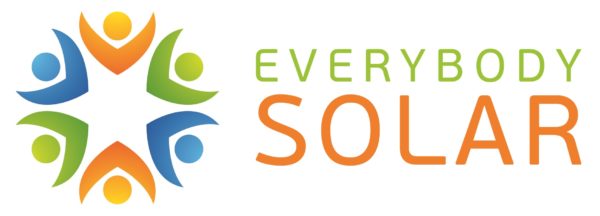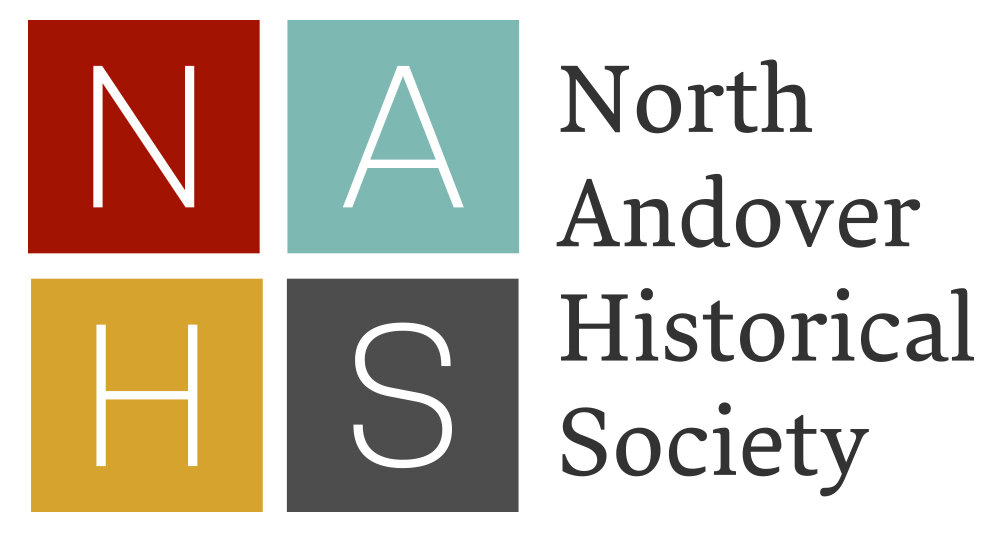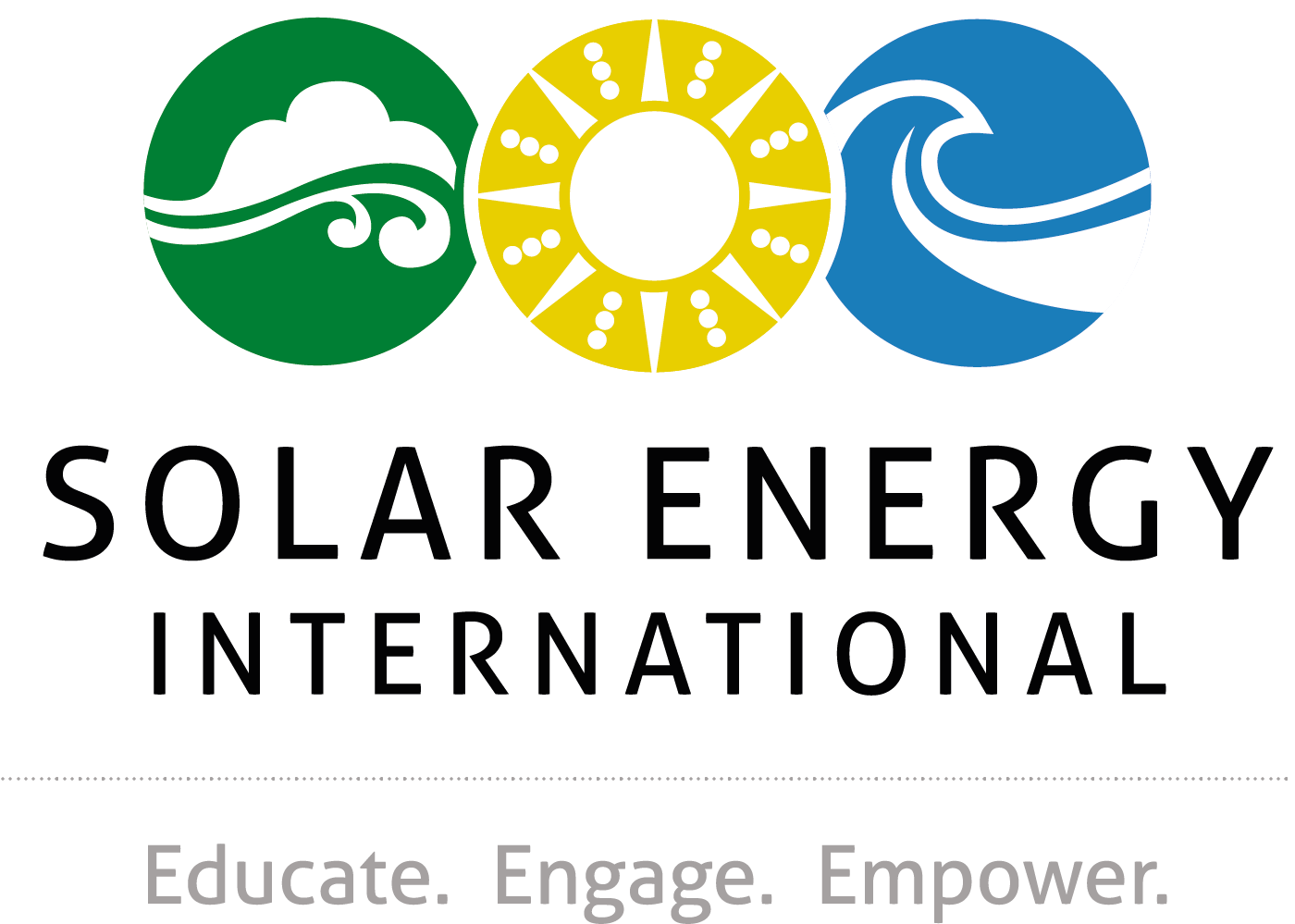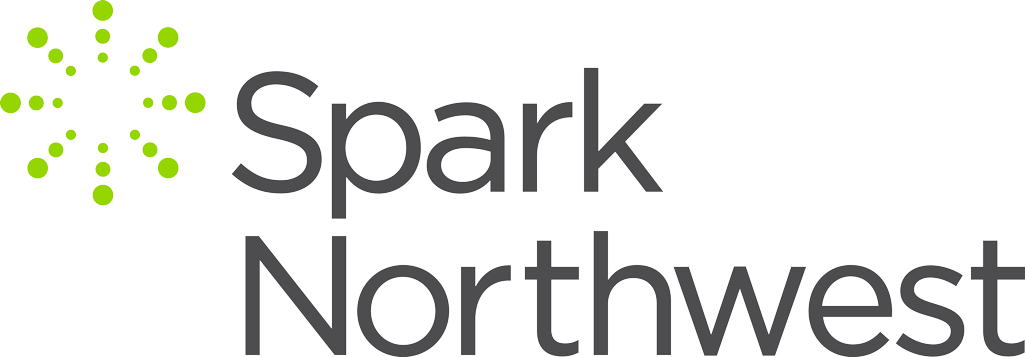Past Solar Projects
Past Solar Projects
Adventure Science Center Brings Science to Life with Solar Exhibit Promoting Clean Energy Education for All Ages
Everybody Solar knows firsthand that nonprofit organizations face budget constraints and tight resources, making it challenging to invest in renewable energy. Yet it remains undaunted as the nonprofit organization has been helping other nonprofits transition to solar energy by providing solar panel systems, technical support, and educational resources since 2011. Teaming up with Adventure Science Center, Everybody Solar hopes to inspire individuals and organizations to adopt clean energy practices including harnessing the power of the sun.
With support of an All Points North Foundation grant, the science center will install a 72.32 kW solar array which is expected to generate 109,009 kWh of electricity annually. Not only will the solar initiative help reduce electricity expenses by about $10,956 per year but will also help prevent 159,377 CO2 emissions from entering the atmosphere, reducing the science center’s carbon footprint.
For over 75 years, Adventure Science Center has been bringing science to life through innovative and dynamic learning experiences in Middle Tennessee and across the U.S. This latest peek behind the scenes of solar technology aims to raise awareness of the importance and urgency of renewable energy, encouraging visitors to take action towards a more sustainable future.
The cleverly designed exhibit will allow visitors to explore the inner workings of a solar panel. While the exhibit aims to engage visitors with its playful and relatable design, its message will embrace people of all generations. It will also inspire future generations to pursue careers in STEM fields and contribute to clean energy technologies. More than 300,000 visitors are expected to attend the science center annually, including more than 75,000 students from 73 Tennessee School systems.
For more information: www.everybodysolar.org
GRID Alternatives Brings Clean Energy to Pueblo’s Tamaya Wellness Center
Partnering with GRID Alternatives, The Pueblo of Santa Ana (PSA) is stepping up its commitment to transition to clean energy and create local job opportunities while fostering the environmental and economic wellbeing of its members.
Through a $100,000 grant from All Points North Foundation, GRID will facilitate the installation of a 138.51kW-DC, 110kW-AC system on the roof of the Pueblo’s state-of-the art Tamaya Wellness Center that promotes health and wellness as a way of life. From mindful eating to Little League to water aerobics to family movie night, the Center believes wellness is about the strength and perseverance of families in the north central New Mexico community.
Powered by solar energy, the Center will rely on a grid-tied roof system interconnected to the local utility, and will build off of Pueblo’s previous efforts to transition to cleaner energy. The initiative not only enhances local solar knowledge and capacity but also paves the way for similar solar projects in the future, creating promising career pathways within the community. Over the past two years, GRID Alternatives has collaborated with PSA to boost solar energy production and community job training.
With an eye toward energy sovereignty through cleaner energy sources, this initiative also means economic returns for the Pueblo community. Using bifacial solar panels, double-sided panel technology that absorbs solar energy from both sides, PSA projects are to save almost $15,000 a year on energy bills which equates to $373,491 in savings over the system’s 25-year lifetime.
Since 2010, GRID has partnered with over 50 Tribal Nations across the country and has installed over 1,000 solar projects while providing training to over 1,600 tribal members. GRID’s Tribal Program will serve as the solar installation contractor and trainer for the project, recruiting at least three local tribal members to participate in the initiative.
For more information: www.gridalternatives.org
Solar Energy Technology Helps Historical Society Embrace a Future Rooted in the Past
Since 1913, the North Andover Historical Society has been rooted in history and has served as a beacon of education, preserving Merrimack Valley’s yesteryears. Through the bold vision of its Board of Directors, dedicated staff and volunteers, the Historical Society is now embracing the future, evolving the non-profit education institution as a dynamic place where community learns about innovating the future as it is educated about the past.
A grant from All Points North Foundation will support an interactive exhibit, The Power from the Sun, aimed at middle-school students who were among those impacted by the 2018 natural gas explosion disaster in the tri-town area of Massachusetts. Yet, its lessons are scalable to all ages. With input from the local Youth Development Organization, the solar education program will include technology and installation techniques that not only help engineer the future but economic growth by building a local workforce of the future. Hands-on STEM classes for school and summer will be offered as will classes for the community-at-large on how to go solar at home or at work.
Inspiration for this effort began in 2019 when the Historical Society installed roof mounted solar panels to produce electricity and retrofitted the Stevens Center to net-zero energy housing traditional historical exhibits, a research library, two museum wings and a theater. The solar energy technology exhibit will be a key component of the Energy Alive initiative with the Gallery of Transportation, Industry and Energy.
In addition, solar education will be augmented with lessons learned on how different energy technologies directly impact equity and environmental justice especially among local communities and neighboring disadvantaged and low-income neighborhoods.
Through a dual lens of culture and technology, the past becomes future in an inclusive, community-centric, environmentally friendly approach designed to inspire its visitors to claim a stake in a shared future where sustainability will keep history and energy alive and positively impact people and planet.
For more information: www.northandoverhistoricalsociety.org

American Solar Energy Society Expands National Solar Home Tour to Middle Schools with “Know Your Solar” Program
The American Solar Energy Society (ASES) is a non-profit organization that advocates for sustainable living and renewable energy. ASES, founded in 1954, is unique in its ability to integrate the range of views from science, industry, policy and citizens across the country. With their National Solar Tour, ASES provides a free, coast-to-coast mix of in-person and virtual sites that build awareness and introduce communities to solar energy.
With a second grant from All Points North Foundation, ASES will expand the reach of the National Solar Home Tour by engaging middle schools in the “Know Your Solar” program. As part of the program, local ASES chapters will work to identify 10 solar-equipped middle schools, and teachers, administrators or departments within those schools, to host a local solar tour.
These chapters will also help schools with on-site coordination the day of the tour. ASES will build on its existing solar educational resources and create custom multigenerational “Know Your Solar” materials for teachers and administrators to use with their students, and with the community on the day of the tour. ASES chapters will also ask local solar installers, who equipped the schools with their solar systems, to present on the benefits of solar.
With the addition of middle schools to the Solar Home Tour, more young people will learn about the U.S. energy infrastructure and the benefits of solar. Offering solar educational resources that address the full array of solar provides an opportunity for students to ignite their interest and drive solar energy adoption.
ASES continues to accelerate equitable solar adoption and sustainable living through educational and awareness building activities. With the National Solar Tour and the expansion to include middle schools this year, that goal can become reality.
For more information: www.ases.org

The American Solar Energy Society to Expand National Solar Tour via New Hybrid Approach
The visionaries who formed the American Solar Energy Society (ASES) in 1954 – the year Bell Labs patented the first silicon solar cell — saw a future powered by the sun. Since then, ASES has played a role in moving the needle for solar through convening subject matter experts at its annual conference, educating solar advocates through its Solar Today Magazine and working to increase the adoption of solar through its National Solar Tour, the largest annual grassroots solar event in the U.S.
Due to COVID-19, in 2020 ASES launched its all-virtual National Solar Tour – the first in the Tour’s 25-year history. Adoption of solar grows through word-of-mouth, and allowing participants to learn about local solar policies, the solar installation process, PV technologies available and more from each other perpetuates the increased adoption of solar nationally. Like any new format, going 100% virtual has provided useful lessons and ASES is looking to develop and expand upon a more robust platform supporting both virtual and in-person tours in 2021. ASES’ goal is to have 20,000 participants engaged in this new hybrid approach, including holding 1,500 individual open houses nationwide.
The ASES team knows from experience that knowledge and community are a powerful combination for change. The National Solar Tour is a perfect example of this belief. Like the visionaries who began this solar journey, ASES leadership continues to rise to the challenges of today by advocating for sustainable living and working towards a future of 100% renewable energy.
For more information: www.ases.org

Oregon Charter School’s Solar Project Achieves Energy Savings and Education Goals
At Bend International School, a new gymnasium is providing more than just physical education. With a focus on empowering and challenging students to excel academically and socially through integrated project-based learning with a global focus, this K-8 charter school’s new gymnasium will also be the source of energy savings for the school and a conduit for educating its students and the community about the positive effects of solar power.
With the help of a grant from All Points North Foundation, Bend International plans to immerse its students in the world of solar power by installing a 42.7 kW solar system on its new gymnasium roof. Installing the system will offset Bend International’s electricity usage by approximately 70-80 percent, generating thousands of dollars in cost savings annually. The project will also provide for the integration of lessons on solar energy into every classroom and, therefore, expand the school’s overall STEM education initiative. A new display at the entrance will demonstrate the amount of energy generated, how much carbon is offset and how different factors affect energy production.
The solar panel project is part of Bend International School’s commitment to global sustainability and its efforts to expose students at early ages to the benefits of green infrastructure and how renewable energy, such as solar, is key to their own sustainable futures.
For more information: www.bendinternationalschool.org

Bend-Redmond Habitat for Humanity Brings Solar Energy to Affordable Housing
Access to affordable housing is increasingly challenging in Bend, Oregon as the area has experienced significant population growth with newer populations introducing new wealth and capital into the region, a housing shortage and housing price increases. Owning or renting a home in the area has become out of reach for working families.. Bend-Redmond Habitat for Humanity believes that first responders, healthcare providers, teachers, small business owners and other working families deserve a path to homeownership. Having served 220 families since 1989, the organization is dedicated to providing affordable homeownership to individuals in the area.
In partnership with All Points North Foundation, Bend-Redmond Habitat for Humanity will provide roof-mounted solar systems on 12 low-to-moderate income townhomes that are part of the organization’s 27th Street Townhome project. The solar systems will reduce the energy supplied by the utilities by up to 48 percent, providing significant savings to the future homeowners.
As a part of this project, each townhome will have eight solar panels installed on the roof for a total of 3.2 kW each. The system will also include energy monitoring to provide homeowners with data and insights regarding their energy usage and savings.
Bend-Redmond Habitat for Humanity realizes that affordable housing opportunities are a critical component to continued growth in Bend, Oregon. These new net zero townhomes with solar systems are bringing homeownership to those who need it most.
For more information: www.bendredmondhabitat.org
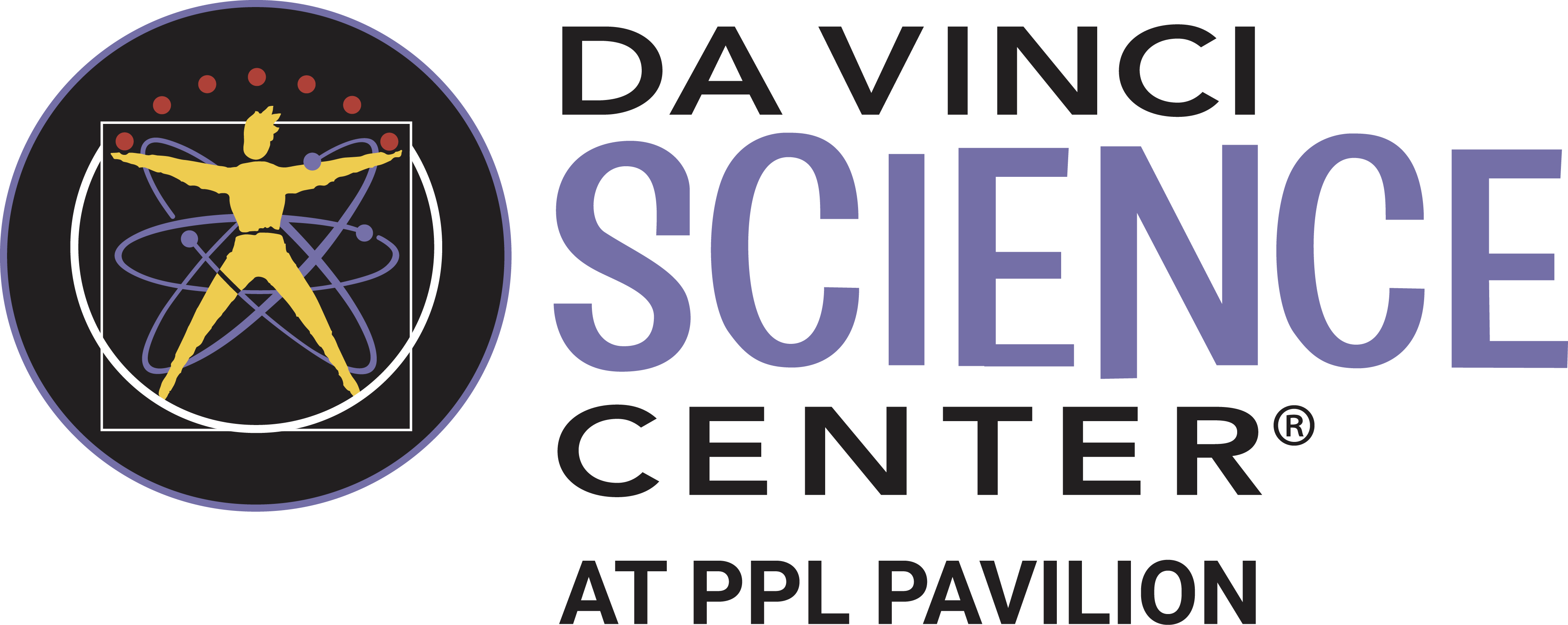
The Da Vinci Discovery Center of Science and Technology Demonstrates Solar Power in Action with Exhibit and Installation
As a national award-winning science center, Da Vinci Science Center brings science to life through fun and approachable experiences for more than 150,000 visitors of all ages and backgrounds each year. The Science Center has a long tradition of partnering with local school districts and providing science education for schools and families in low-income communities.
On the horizon is a new, 71,000-square-foot facility that will double in size to the current facility, provide three times the exhibit space and twice the educational programming space. The Da Vinci Science Center at PPL Pavilion is slated to open in downtown Allentown, Pennsylvania in the spring of 2024.
A key component of this new building will be an exhibit funded by All Points North Foundation that demonstrates the impact of solar energy. The interactive exhibit, located in the Science in the Making Gallery, will feature a powerful spotlight that shines down from above on a large mirror mounted on a movable gimbal. Visitors will be able to manipulate the mirror to direct the beam of light toward a mural depicting a neighborhood. Embedded in the neighborhood mural will be several small solar panels that will give the impression of illuminated windows when the beam of light passes over them. The exhibit will demonstrate how solar panels produce electricity and how solar power is becoming an ever more important part of the electrical grid. Visitors will explore the potential for solar energy to be a leading source of power for homes, businesses, and communities.
The new building will also include roof-mounted photovoltaic solar system provided by PPL Electric Utilities, the service provider in the region, that will lead to a projected $4,000 in energy savings a year for Da Vinci Science Center at PPL Pavilion. Visitors will be able to see how much energy is produced by the solar panels via a meter near the solar exhibit.
For more information: www.davincisciencecenter.org
An Energy Encore for Dell’Arte
For Dell’Arte International, the world is quite literally a stage. And, the critically acclaimed nonprofit theatrical organization brings that cultural stage to California where they have engendered the relationship between art and place, artist and community for 40 years.
Since opening its doors in 1975, the organization has been providing a unique blend of arts and community service that has cultivated strong ties between Dell’Arte and the town of Blue Lake – and other rural and culturally diverse towns in Northwest California. In a sense, the theatre has become a community epicenter – providing local arts initiatives and attracting visitors from around the world.
Now, committed as ever to the community’s preservation and growth, Dell’Arte is embarking on a solar energy project that will increase the theatre’s energy efficiency and utilize the region’s available solar power. By installing a 17kW solar generator, the theatre will offset between 50 and 70 percent of its electricity use and ultimately achieve a high level of energy independence – a strategic vision for the Blue Lake community and the larger state of California.
But Dell’Arte has an even loftier goal in mind. By investing in solar technology, the theatre hopes to bring solar awareness to its community and serve as a catalyst for area residents, businesses and other nonprofits. For rural towns like Blue Lake – where access to high technology is inconsistent – energy independence can reduce costs, increase efficiency, and lead to sustainable operations.
By shining a spotlight on solar power, Dell’Arte continues to lead by example, both on and off the stage, and protect an environment and community vital to the organization’s success.
For more information: www.dellarte.com

Solar PV System for Emerald Coast Fitness Foundation to Reduce High Electricity Costs for a Destin, Florida Aquatic Center Community Gem
After the operator of two aquatic facilities in Oklaoosa County, Florida, went bankrupt in late 2014, a dedicated group of volunteers coalesced and devised a strategy to reopen and operate them. The grassroots group, led by swimmers with business backgrounds and a keen interest in seeing the sport and local fitness and lesson opportunities continue, formed the Emerald Coast Fitness Foundation (ECFF), an all-volunteer led and run organization. Its only paid employees are part-time lifeguards.
Through creative partnerships with a local school in Fort Walton Beach and an arts foundation in Destin, the facilities reopened, providing an aquatic home to thousands of young to senior swimmers and school and master’s swim teams. Major fundraising efforts covered all capital expenses, including renovations, and revenue from programs and pool rentals pays for operating costs.
While ECFF’s Fort Walton Beach Bernie R. Lefebvre Aquatic Center operates in the black, operating expenses at the Aquatic Center in Destin center are steep. With two pools at the latter, more lifeguards are required, and water, chemical, equipment, and energy costs are greater. With utility expenses for the Destin facility so high, ECFF recognized the need to reduce expenses as much as possible to ensure program fees are kept at affordable levels while keeping a balanced budget.
ECFF’s successful fundraising for the 2019 installation of a geothermal heating/cooling system for Destin’s pool water helped reduce gas and electric energy consumption and expenses, but the group realized more could be done. As the organization aims to increase the Aquatic Center’s energy efficiency by converting lighting fixtures to LED’s and installing variable frequency pump controls, an All Points North Foundation-funded solar PV system will greatly reduce electricity costs and allow the pool to operate in a more sustainable manner. Coupled with the existing geothermal system, this measure will allow the Aquatic Center of Destin to conserve both precious environmental and fiscal resources.
For more information: www.ecfitnessfoundation.org
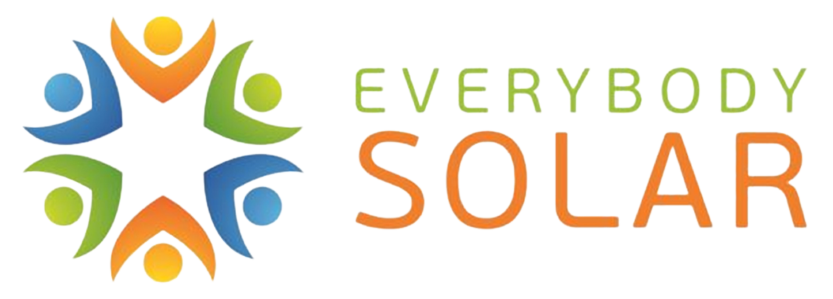
Solar for the Creative Discovery Museum
California-based nonprofit Everybody Solar believes that giving the gift of solar energy can help alleviate some of the burden of electricity costs borne by nonprofit organizations while simultaneously reducing their environmental impacts. By harnessing the growing power of solar energy, Everybody Solar helps other nonprofits cut their electricity costs so they can focus on what they do best – provide essential services to their communities.
Everybody Solar has partnered with the Creative Discovery Museum (CDM), a children’s museum in Chattanooga, to provide a 41.9 kilowatt solar system and to create a virtual solar energy science lesson.
This virtual learning experience, “View It & Do It,” will be a fun and creative way of engaging middle school and upper-elementary students in light of the pandemic, while still providing hands-on activities that help to reinforce the science concepts behind solar. The nearly $7,000 in annual savings from the solar energy system will help support CDM’s “Museum for All” initiative, which provides more than 50,000 free and discounted admissions every year.
Cost savings and youth engagement in the science of solar energy are key benefits of the Everybody Solar-CDM partnership, contributing to the vital community service the Museum provides to Chattanooga and beyond. Such win-win solutions are all in a day’s work for Everybody Solar, underscoring its dedication to a clean energy future for all.
For more information: www.everybodysolar.org
Solar for the Eugene Science Center
Everybody Solar, a 501(c)3, believes that giving the gift of solar energy can help alleviate some of the economic burdens borne by nonprofit organizations by significantly reducing electricity costs while simultaneously reducing their environmental impact. By harnessing the growing power of solar energy, Everybody Solar helps nonprofits cut electricity costs so they can focus on what they do best – provide essential services to their communities.
Through the Solar for the Eugene Science Center (ESC) project, over 36,000 visitors will learn about solar while exploring their new interactive solar exhibit and solar array.
Formerly known as the Science Factory, and under new leadership, the ESC has great ambitions to upgrade their facilities and bring new exhibits and program spaces through a new initiative. At the center of this effort is the new hands-on solar exhibit, and also a state-of-the-art 32.5 kW photovoltaic system. The solar array will improve the ESC’s carbon footprint by producing an estimated 380,000 kWh of electricity, averting over 625,000 lbs. of carbon dioxide from entering the atmosphere over the next 10 years. The electricity cost savings can then be diverted to their discounted access programs, educational exhibits, participatory activities, and planetarium shows.
The transformative experience at the Eugene Science Center inspires others to help make communities more sustainable. As Everybody Solar attests, everybody has a right to affordable energy and clean air.
For more information: www.everybodysolar.org
Harnessing the Power of the Sun for the Sciencenter
Everybody Solar, a 501©3, believes that giving the gift of solar energy can help alleviate some of the economic burden borne by nonprofit organizations by significantly reducing electricity costs. By harnessing the growing power of solar energy, Everybody Solar helps nonprofits cut electricity costs so they can focus on what they do best – providing essential services to their in-need communities.
Through the Solar for the Sciencenter project, over 100,000 visitors to the museum in Ithaca, NY will learn how to improve ecological footprints in their communities through renewable energy.
This dynamic hands-on gallery – a learning magnet for elementary students and their families — inspires excitement for science through interactive exhibits and programs that engage, educate, and empower.
Another 1.5 million guests worldwide will also experience how technology harnesses energy from the sun thanks to traveling exhibitions and outreach programs.
The Solar for the Sciencenter project is expected to produce 177,000 kilowatt hours of electricity, and avert 150,000 pounds of C02 from entering the atmosphere over the first 10 years of its 25 year expected life. In the process, the Sciencenter will save over $1,700 per year on utility costs. That real-time reduction in the Sciencenter’s overhead costs will enable them to grow their free access programs which provide free memberships for low-income families.
The transformative experience, at the Sciencenter and in other deserving communities that Everybody Solar supports, inspires others to help make communities more sustainable. As Everybody Solar attests, everybody has a right to affordable energy and clean air.
For more information: www.everybodysolar.org
GRID Alternatives Partners With the Rosebud Sioux Tribe To Develop Community and Residential Solar Systems That Include Workforce Development
As the nation’s largest nonprofit solar installer, GRID’s mission is to make renewable energy technology and job training accessible to underserved communities. GRID aims to put money back into families’ pockets, reduce the energy cost burden for housing providers, and launch solar careers. By partnering with affordable housing organizations, job training groups, government agencies, municipalities, tribal nations, utilities, and local communities, GRID looks to bring solar to everyone.
GRID’s latest project with All Points North Foundation continues the partnership with the Rosebud Sioux Tribe, which began in 2017 with the Rosebud Sioux Initiative.
The new project will bring the benefits of solar power and job training to the Rosebud Sioux Indian Reservation. GRID will work with the Rosebud Sioux Tribe Sicangu Wicoti Awayankapi (SWA) Corporation, the Rosebud Sioux Tribal Utility Commission and Sinte Gleska University to develop a 149 kilowatt community solar system, as well as 13 residential rooftop solar systems to offset approximately 50% of the electrical usage in the Sicangu Village community. GRID will also incorporate workforce development throughout the project, by providing hands-on installation experience for local tribal members and students. This project marks the third time that GRID has joined forces with All Points North Foundation to help tribal communities achieve their renewable energy goals.
Since being founded in 2001 during the height of the California energy crisis, GRID has installed over 12,600 solar PV systems, for a total of 55 Megawatts (MW-DC), that will provide an estimated $375 million in long-term energy savings for low-income households. To date, GRID has also offset 975,000 tons of greenhouse gas emissions in communities that traditionally have been exposed to pollution and climate change. GRID has also provided 226,000 hours of hands-on solar installation training to over 31,000 people across the U.S.
For more information: www.gridalternatives.org
Bringing Solar Power and Solar Job Training Home to Rosebud Sioux Nation
Winters can be severe on the Rosebud Indian Reservation in Todd County, SD, with icy winds and temperatures regularly in the teens. These harsh conditions combined with aging, inefficient homes and heating systems drive up the cost of electric utility bills for the majority of Tribal members and the Tribe itself, exacerbating the economic struggles faced on a daily basis on the Reservation.
In its efforts to improve the standard of living for Tribal members, the Rosebud Tribal Utility Commission and the Housing Authority are looking at investing in renewable energy, and solar PV in particular, to bring down long-term electricity costs. The effort will save the community millions of dollars and help the Tribe realize its goal of gaining more control of its energy expenditures.
With support from All Points North Foundation, the tribe is partnering with GRID Alternatives, the nation’s largest nonprofit solar installer to install solar electric systems for low-income tribal families, targeting the highest need first. In the process, GRID is providing “classroom on the roof” training to tribal members interested in hands-on skills building in solar PV and increasing their employment opportunities in the growing solar jobs market.
This “triple bottom line” model of “People. Planet. Employment” is part of GRID’s larger effort to bring solar PV to scale on tribal lands throughout the United States through innovative partnerships. To date, communities in seven states have established solar PV as a sustainable economic development strategy for their tribes. And, GRID is confident that the Rosebud Sioux Tribe will set a precedent to becoming a scalable and sustainable model of solar for all of its homes.
Since its founding in 2001, GRID has stayed true to its simple vision not just for tribal lands but the nation’s underserved communities: free, clean electricity from the sun should be available to everyone.
For more information: www.gridalternatives.org
GRID Alternatives to Bring Solar, Workforce Development Opportunities to Navajo Nation
As the nation’s largest nonprofit solar installer, GRID Alternatives’ (GRID) mission is to build community-powered solutions to advance economic and environmental justice through renewable energy. GRID helps to put money back into families’ pockets, reduce the energy cost burden for housing providers and launch solar careers. By partnering with affordable housing organizations, job training groups, government agencies, municipalities, tribal nations, utilities and local communities, GRID aims to bring solar to all.
Since 2015, GRID’s Tribal Program has completed more than 30 solar projects in partnership with the Navajo Nation, empowering tribal members through capacity building and real-world installation training. Over the next three years, GRID will build upon this work, deploying more than 35 additional installations, and bringing an estimated $550,000 in long-term energy savings to Navajo Nation tribal communities in New Mexico.
In addition, GRID will continue to incorporate hands-on installation experiences for local tribal members, including via partnerships with tribal college and/or university students. This project marks the fourth time that All Points North Foundation has joined forces with GRID to help tribal communities achieve their renewable energy goals, and is the first solar multi-year grant awarded by All Points North Foundation.
Historically, communities throughout the Navajo Nation have depended upon energy development related to uranium mining, coal-powered plants and natural gas. GRID’s innovative approach provides a local model to inform the transition to clean energy across Navajo Nation.
For more information: www.gridalternatives.org

Optimizing Energy Efficiency, Cost of Solar to Support Habitat for Humanity Families via Unique University Partnership
Habitat for Humanity is perhaps best known for bringing people together to build homes through ‘sweat equity’ and volunteerism, enabling a pathway to homeownership for many. However, a decades-long partnership between Georgia’s Macon Area Habitat for Humanity (Habitat) and Mercer University aims to increase homeownership affordability through low-cost solar deployment in an area where such deployment is historically low. A team of talented Mercer University engineering students with a passion to see change in the world are working to optimize Habitat’s highly efficient homes and design solar PV systems in a way that they can be installed by local trained technicians – drastically reducing the cost of the overall photovoltaic (PV) system while lowering each homeowner’s electricity bill.
Through All Points North Foundation support, the Habitat-Mercer University partnership will provide five highly energy-efficient Habitat homes with grid-tied rooftop solar PV systems at no cost. The individual systems will offset approximately 80-100% of each home’s annual energy needs, saving an estimated 6,400 kilowatt hours of fossil fuel-sourced electricity, resulting in nearly $1,000 in savings per year for each homeowner. Even more unique is that the partnership will be led by Mercer University students with support from a consultant accredited by the North American Board of Certified Energy Practitioners to assist in the PV system’s design and installation, and in training of both local technicians and Habitat construction staff.
The Macon Area Habitat for Humanity has been building quality homes for low-income, first-time homebuyers since 1986, and finding ways to increase access to solar to lower electricity costs in these homes aids in ensuring affordable homeownership. Habitat for Humanity has more than 1,500 local U.S. affiliates, and the Macon Area Habitat’s partnership with Mercer University can stand as a model for replication elsewhere.
For more information: www.maconhabitat.org
Inspiring Sustainability, Conservation, and Education
Tucked away at the end of a five-mile wilderness trek through the Blue Ridge Mountains stands Georgia’s only backcountry lodge, Len Foote Hike Inn. Showcasing green building techniques in a unique backcountry setting, Hike Inn leverages the Inn’s sustainable design and practices as a living teaching tool to guests and communities alike.
Geographically ideal for alternative energy, Georgia’s solar energy is a vastly underutilized resource with much of the population not exposed to its benefits.
Thus, the Hike Inn, the first to earn the coveted Gold LEED-EB certification in the southeastern United States, promotes awareness, knowledge, and support of the benefits of solar energy with intention.
Providing a unique educational experience, the Hike Inn promotes physical health, environmental awareness and stewardship, and hands on application of sustainability. From a small photovoltaic system and passive solar thermal water systems to the composting of food waste and recycling for waste diversion, the Hike Inn leads the way in sustainable operations for Georgia State Park facilities.
As a unique learning resource center, it continues to inspire environmental stewardship with its latest project, Above the Grid. This energy literacy project includes both installing a new photovoltaic solar system to increase solar electric power and improve sustainability operations, and promoting solar technology innovation through education outreach targeted to adults and youth. In 2017, the Hike Inn will install a new 53.72 kWh system, providing up to 69% of their electric energy needs from solar power, and promoting solar energy education and awareness in the process.
For more information: www.hike-inn.com
Instituto Nueva Escuela To Install Solar Plus Storage System to Ensure School Has Reliable Electricity
Following the devastation from Hurricane Maria, the non-profit Instituto Nueva Escuela (INE) did what community leaders do without hesitation – it began to rebuild to meet the needs of the schools and communities it serves. With a grant from All Points North Foundation, INE is working to provide reliable electricity to San Juan’s School Victor Parés Collazo and its 100 students (including its special needs youth), and their families, the majority of whom live under the poverty level.
Regarded as the worst natural disaster on record to affect Dominica and Puerto Rico, the hurricane also triggered the largest blackout in history. Although electricity has since been slowly restored, the grid supplying energy to the INE network of schools remains vulnerable. To avert another potential natural disaster in the future, INE began boldly developing a solar energy initiative for providing a more resilient energy system.
The solar plus storage system is designed to run the school’s critical loads such as lighting and refrigeration for over two hours in islanding mode. If the grid goes down, the school will continue to receive electricity. During the day, the school can run loads with a 30kW solar PV system while still being able to sufficiently recharge the batteries. The design allows for expandable storage should the school see a need for more autonomy in the future. The provision also enables the school to serve as a community center for distributing aid and providing shelter during future natural disasters. On top of its resiliency factor, the solar system is estimated to produce over 41,000 kWh annually of clean electricity.
While the disaster has left an indelible imprint on the lives of many, more than a year later INE is intent on ensuring its schools are equipped with a more resilient grid. The catastrophic event has not dampened INE’s spirit as it remains focused on its primary mission of quality education and “to achieve peace in Puerto Rico through an excellent school for all.”
For more information: www.inepr.com
The Leelanau Community Cultural Center to Install PV Solar System to Stem Energy Costs and Protect the Future of this Cultural Landmark
For over 96 years the Old Art Building has been both a touchstone and a welcome home sign for the residents of Leland, Michigan and for those who come back every year to enjoy a variety of over 600 programs focused on education, arts and culture. Today, the Old Art Building is known as one of the oldest, continuous art centers in the state, where young and old can come together and learn how to dance, paint, or see a world class concert.
Since becoming a nonprofit in 1992, the nonprofit Leelanau Community Cultural Center (LCCC) has been administering these cultural programs and working on maintaining the Old Art Building. In order to mitigate the rising costs of energy and find a cleaner way to protect the future of this landmark, the LCCC will install a solar PV system thanks to the support of All Points North Foundation.
A real time monitoring display unit on the outside of the building will provide the public with information on energy consumption and savings, creating constant awareness about the benefits of solar energy. Local students will have the opportunity to be educated on PV energy, as the LCCC will coordinate on-site visits for both private and public area schools. In addition, LCCC will highlight the positives of solar energy through lectures and tours of the building, and by producing a flyer for the 16,000 visitors who come through the doors every year. A special celebration will also be held to commission this new solar system during a dedication ceremony, where local dignitaries, politicians, members and the public will be invited to attend.
While the mission of the LCCC is primarily to promote cultural enrichment programs and events, and provide a gathering place for the community, the new PV solar system guarantees that the Old Art Building will continue to be a significant part of Leelanau history for years to come.
For more information: www.oldartbuilding.com
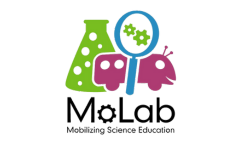
The Science Center on Wheels Brings Solar STEM Opportunities to Underserved Communities
Access to fun, interactive, STEM-based programming is often out of reach for schools in underserved communities, due to lack of resources. Such education opportunities are critical components to sparking interest in STEM-related fields among youth to help ensure they are not held back from STEM careers. Nonprofit Mobile Science Laboratory, Inc. (MoLab) works to change this dynamic by providing on-the-go, hands-on, inquiry-backed science experiences through its mobile laboratory, creatively bringing STEM programming to Florida schools — especially those in underserved communities.
Tallahassee-based MoLab has partnered with All Points North Foundation on a new program, the MoBus Solar Science Sustainability Lab, to provide solar science education to nine Title 1 middle schools in Florida’s Leon and Gadsden Counties, with activities ensuring physical distancing during the COVID-19 pandemic.
As part of this programming, the first six months of the MoLab project will include completing the transformation of the MoBus: installation of a vehicle wrap to generate excitement and additional lab equipment for use with a new curriculum, installation of solar panels on the bus to power lab activities, development of a film introducing students to solar energy and conversion of the MoBus to a more sustainable vegetable waste oil fuel source. While the focus of the curriculum will be on solar, this clean energy technology provides an excellent introduction to STEM programming, such as understanding circuitry and electricity and helping students recognize the connection between energy and all living things.
MoLab’s founders know having access to STEM education opportunities is a critical component in raising up underserved communities and schools, and also helps to bridge the ethnic and gender gaps seen in math and science fields. As school budgets and out-of-classroom experiences are reduced, MoLab brings hands-on solar programing to those who need it most.
For more information: www.tallymolab.org

Mobile Science Sustainability Lab Brings Hands-On Solar Education to Middle Schools
Access to fun, interactive science, technology, engineering, and math (STEM) programming is often out of reach for schools in underserved communities due to a lack of resources. Such education opportunities are critical components to spark interest in STEM-related fields among youth. Tallahassee-based nonprofit Mobile Science Laboratory, Inc. (MoLab) addresses this critical need by directly bringing dynamic, on-the-go, and hands-on science experiences to schools in underserved communities with MoBus, their mobile science lab.
Continuing their partnership with All Points North Foundation, MoLab will provide project-based, collaborative solar education to sixth-grade students at eight Title 1 middle schools in Leon and Gadsden counties in Florida. MoLab’s multi-faceted approach raises awareness about solar and the need for alternative energy sources, reinforcing in-school science curriculum and bridging the racial, ethnic, and gender gaps in STEM fields.
Within MoBus, students experience both the Sustainability Station, where they receive an introduction to electricity and learn how a solar cell is engineered, and the Fab Lab, where they participate in a series of hands-on experiments with solar circuitry materials.
As a part of this project, MoBus will be equipped with a new lithium iron (LiFe Power) battery system to augment the solar panels that were installed with a previous grant, and its interior upgraded.
MoLab’s founders know having access to STEM education opportunities is a critical component in raising underserved communities and schools. As school budgets and out-of-classroom experiences are reduced, MoLab brings hands-on solar programming to those who need it most.
For more information: www.tallymolab.org
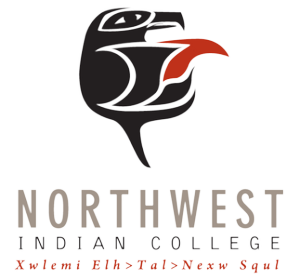
Developing a Solar Energy Technical and Vocational Training Program for Indigenous Communities
Located at Lummi Nation in Washington State, 20 miles south of the Canadian border, Northwest Indian College (NWIC) is the only accredited Tribal College serving the states of Washington, Oregon and Idaho. NWIC has evolved from its beginnings in 1973 as a training program for technicians in aquaculture to an accredited college today with two- and four-year degree programs, including an expanding engineering curriculum and growing focus on renewable energy and energy sovereignty.
NWIC is partnering with Remote Energy and All Points North Foundation to conduct a new hands-on solar energy technical and vocational training program for students and local solar technicians with the goal of developing a renewable energy workforce among Indigenous communities. The program will include the construction of a “mock” roof on NWIC’s campus and the installation of a 2.4 kW grid direct solar energy system. The “mock” roof installation will, in turn, serve as the hands-on lab for a series of teacher-training courses and, ultimately, workshops and classes for engineering students and Tribal technicians interested in all aspects of solar installations and solar workplace protocols.
In addition, this new solar training program will be central to eventually expanding NWIC’s two-year pre-engineering curriculum into a four-year engineering degree program focused on renewable energy, including Smart Grid and Microgrid technologies − an effort that represents another important step toward the goal of achieving energy sovereignty at Lummi Nation.
For more information: www.nwic.edu
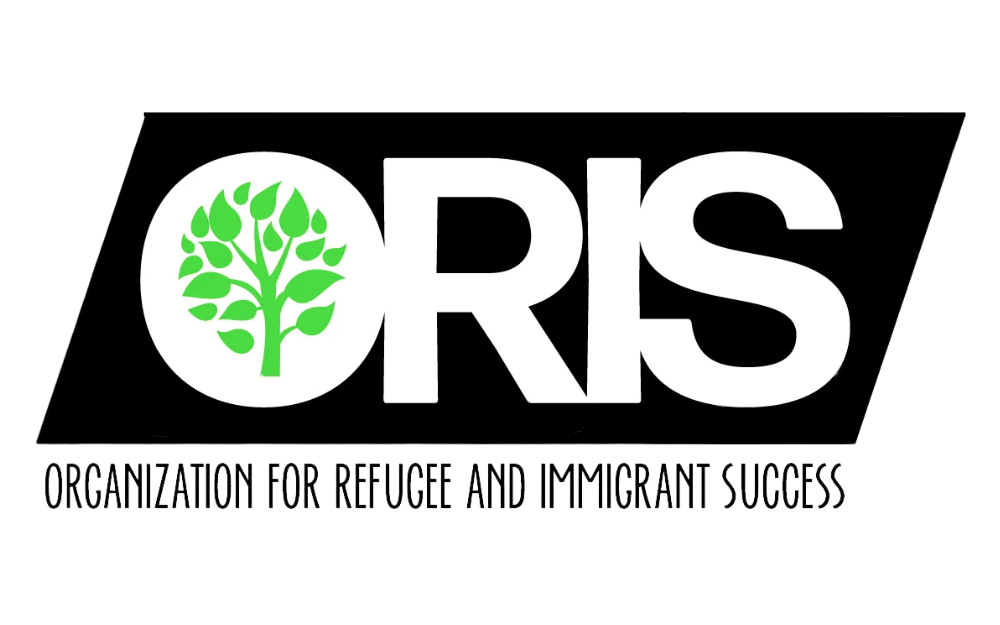
Organization for Refugee and Immigrant Success (ORIS) Solar Project Provides Energy Savings for Farmers
The Organization for Refugee and Immigrant Success (ORIS) based in Manchester, New Hampshire, is installing a ground-mount community solar project at its Fresh Start Farms in nearby Dunbarton.
ORIS provides land, training, and marketing support for member-farmers representing refugee communities from nine countries, including Somalia, the Democratic Republic of Congo, and Rwanda. The farmers bring agricultural experience from their native countries and adapt to farming and selling produce in the New England climate.
With the help of a grant from All Points North Foundation, ORIS will install a 142kW DC solar array at the farm that will generate an estimated 181,200 kWh annually.
The power will support operations at the farm, and additionally, through a unique utility model, the energy savings from the solar panels will be passed back to the individual farm members. That transfer will reduce their respective power bills by approximately $864 per year on average, generating thousands of dollars in savings annually for the new American farmers.
This large solar array and the unique utility model provide ORIS with a new opportunity in their mission to aid in resettlement of refugees and immigrants. The solar array will provide cost savings to ORIS Fresh Start Farms, as well as savings to the individual refugee families ORIS supports.
For more information: www.refugeesuccess.org
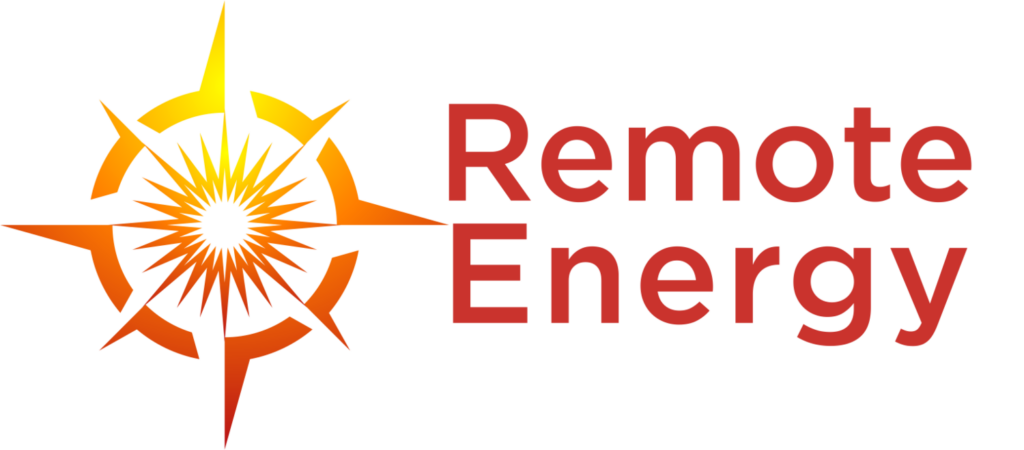
Remote Energy Powers Up Tribal Lands through Native Language Solar Energy Video Project
The solar photovoltaic sector is on the cusp of a remarkable 22% surge from 2022 to 2032, surpassing the average job market expansion, as reported by the U.S. Bureau of Labor Statistics. Meanwhile, a considerable workforce disparity looms, particularly within Indigenous territories. According to the National Renewable Energy Laboratory tribal lands account for nearly 6.5% of the country’s renewable energy potential. However, 14 percent of households on Native American reservations lack access to electricity — this is 10 times higher than the national average. Furthermore, Native American photovoltaic (PV) technicians and instructors are disproportionately represented in the industry.
With a grant from All Points North Foundation, Remote Energy, a nonprofit that provides solar energy training, will transfer technical and teaching skills through culturally relevant solar energy training videos designed to educate and inspire Native Americans to pursue clean energy opportunities in the PV industry. The videos will be narrated by Native voices in Native languages strengthening ties to local cultures and building a sense of energy sovereignty and independence in Native American communities.
The grant-funded videos will be developed for speakers of the Navajo, Lakota and Hopi Nations. They will cover solar energy systems and fundamentals, applications of solar electric (PV) systems, energy efficiency and conservation, and jobs and opportunities in the PV industry. Content will be created and delivered in easy-to-understand graphics which will ensure that they are relevant to a wide range of learners with varying levels of education and literacy. This model will also allow for future regional expansion of the videos into other languages.
The videos will be shared widespread throughout the Native communities. They will be made available to anyone online, dispersed to tribal council members, housing authorities, and tribal leaders. Remote Energy will also be working with tribal secondary and high school science and/or language classes to integrate the videos into the school’s existing curriculum.
Key to the Tacoma, WA based nonprofit’s work is its close collaboration with indigenous partners including Native Renewables in Arizona and Red Cloud Renewables in South Dakota. These organizations will provide Native language speakers and ensure the curriculum is not only appropriate but grounded in the culture and values of Native communities
For more information: www.remoteenergy.org
Getting Schooled in Energy Conservation and Solar
It’s not your typical day in the classrooms along Colorado’s Front Range – students are actively involved in analyzing and reducing their school’s electricity usage through participation in the ReNew Our Schools Youth Engagement Program. Students and teachers can view electricity data from eGauge energy monitors, which provides instant feedback from any change they make to their school’s energy usage, such as turning off lights or unplugging computers.
This cultural shift in Colorado’s schools demonstrates that cost savings, energy efficiency, and environmental protection are all possible through intentional energy-saving actions.
In the latest ReNew Our Schools program – schools in Colorado’s Douglas County School District — located in one of the fastest growing counties in the country, are competing to see who can lower their energy footprint the most. The top performing schools win a solar array or solar charging station.
Students collaborate with community professionals who mentor these “energy superheroes.” Students sleuth ways to save energy at school and at home. Past competitions have averaged a 16% energy savings with some schools saving as much as 30%. Schools are provided curriculum and solar kits from Need.org to ensure that solar and energy education is not just a one-month lesson but a lifelong way of energy-conscious living. Additionally, the process brings new learnings to teachers and students, who see their efforts in this STEM-based education initiative turn into dramatic cost savings for schools.
The ReNew Our Schools’ energy competition has empowered thousands of K-12 students to become energy stewards who prioritize conservation for years to come.
For more information: www.conservationcenter.org/renew-our-schools
Resource Central’s Boulder Reuse Facility Solar Project puts conservation into action
At Resource Central’s Reuse Facility in Boulder, Colorado, a renovation is adding a solar roof over the covered materials yard. The renovation will transform the facility into a community hub that will increase awareness of solar energy and conservation through reuse, while also providing significant energy savings. The Reuse Facility routinely sees 50,000 visitors each year, in addition to visits by schools and other groups.
With the help of a grant from All Points North Foundation, Resource Central will reduce energy consumption by installing a 25kW solar array on its new materials yard roof. The system will offset electricity usage by approximately 2,500 kW per month on average, generating thousands of dollars in savings annually.
A new display at the materials yard will share the amount of energy generated by solar power and costs saved. Additionally, the project scope will include the installation of a “solar picnic table” for charging electronic devices such as phones and iPads, which will showcase an understandable, real-world example of the benefit of solar energy.
These innovative educational tools, paired with the new cost-saving solar panels, are part of Resource Central’s mission to put conservation into action and help their thriving community live more sustainably.
For more information: resourcecentral.org
Through Its Opportunity Build Solar Training Program, Rising Sun Provides Entry To Careers In the Solar Field
For over 25 years, Rising Sun Center for Opportunity has been empowering individuals to create environmental and economic sustainability for themselves and their communities. Today, Rising Sun is a leading green training, employment, and residential efficiency organization in Northern California. Wanting to build upon their success preparing people for sustainable careers, and with increased solar employment demand, Rising Sun developed the Opportunity Build Solar training program.
Through a grant from All Points North Foundation, Rising Sun’s Solar training program will enable case management and job placement for 20 low-income individuals. This 12-month program will allow entry into solar field careers.
The training will include experience installing solar photovoltaic systems on the homes of low-income residents in partnership with GRID Alternatives, but also will explore other potential job opportunities within the solar industry including design, sales, and permitting. Opportunity Build graduates receive certificates recognized by the solar industry.
All Opportunity Build Solar participants are low income and have experienced roadblocks to consistent employment. Through this program, Rising Sun offers these individuals a pathway out of poverty through a career that offers livable wages and good benefits, while building the clean energy future we need.
Rising Sun adheres to four key values which will all play a role in this project: 1) belief in human potential: when people realize their potential, they can make a difference in their communities, 2) belief that economic, environmental, and social opportunities should be accessible to everyone, 3) belief that resource conservation is a shared responsibility, 4) commitment to achieving tangible results through environmental and social impact.
For more information: www.risingsunopp.org

Rooted Homes’ Crescita Community Solar Project Creates Net-Zero Affordable Homes
Rooted Homes, based in Bend, Oregon, is installing roof-mounted solar panels on five affordable homes at the Crescita community. Rooted Homes is dedicated to providing environmentally sustainable and permanently affordable homeownership opportunities for those who contribute to the fabric of the Central Oregon economy and community.
With the help of a grant from All Points North Foundation, Rooted Homes will install a 12 panel 4.8 kW solar array on the roof of each of the five homes. By utilizing the latest construction techniques in conjunction with the solar panels, this will enable the homes to achieve “net zero” energy usage, offsetting approximately 6,500kWh of electricity in the first year of occupancy resulting in savings of up to $680 annually.
This solar project, new construction techniques and unique approach to homeownership allow Rooted Homes to serve their dual mission of sustainability and affordability.
For more information: rootedhomes.org

New Solar PV System to Provide Energy Savings, Educational Opportunities for Safe Haven Farms
Safe Haven Farms is a place that dreams big. When a group of parents realized that their children with developmental disabilities were aging out of the public school system and that options for residential and vocational programs were lacking, they banded together to find a solution. In 2010, they established a 60-acre farm in Middletown, Ohio to serve the needs of adults with disabilities in a manner that preserves their dignity and promotes their long-term well-being and continuing growth. Today, Safe Haven Farms is home to 16 individuals with autism and other developmental disabilities, serves more than 30 others through its farm and day programs, offers a therapeutic equestrian program for children and adults, and integrates the community through farming and educational programming and volunteerism.
Now, with an All Points North Foundation grant, Safe Haven Farms is pursuing another dream: to convert 40-45 percent of its electricity use to solar energy.
Safe Haven Farms, with the help of Third Sun Solar, will install a 69 kW DC solar PV system on elevated ground mounts to allow for a pollinator garden with native plants to grow beneath it. The solar system installation will help reduce electricity bills and allow funds to be redirected to various farm programs that directly impact the lives of those served. Additionally, the mounted panels and native species garden will enable Safe Haven Farms to incorporate solar energy education into its year-round tours for school groups, families, visitors and volunteers.
Safe Haven Farms looks forward to achieving its clean energy dream, a goal since inception, to showcase the benefits of clean, green energy and a reduced carbon footprint for its surrounding community.
For more information: https://www.safehavenfarms.org

Expanding Solar PV System to Provide Energy Savings, Educational Opportunities for Safe Haven Farms
Safe Haven Farms is a place that provides adults with developmental disabilities options for residential and vocational programs. Today, Safe Haven Farms is home to 16 individuals with autism and other developmental disabilities, serves more than 25 others through its farm and day programs, offers a therapeutic equestrian program for children and adults, and integrates the community through farming and educational programming and volunteerism.
Now, with a second grant from All Points North Foundation grant, Safe Haven Farms is able to expand the existing solar array significantly. With the help of Third Sun Solar/Kokosing, the existing 69 kW DC solar PV ground mount system will be expanded to include an additional 25.4 kW DC for a total of 94.4 kW DC. The solar system has already provided significant savings on the Farm’s electricity bills for the past year.
With the new expansion, even more funds will be available for various farm programs that directly impact adults with developmental disabilities.. Additionally, the entire solar system which includes a native species garden will enable Safe Haven Farms to incorporate solar energy education into its year-round tours for school groups, families, visitors and volunteers.
Safe Haven Farms looks forward to achieving its clean energy dream, a goal since inception to showcase the benefits of clean, green energy and a reduced carbon footprint for its surrounding community.
For more information: https://www.safehavenfarms.org
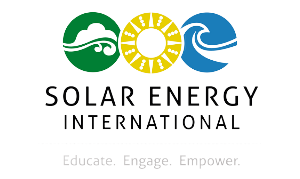
Solar Energy International and Red Cloud Renewable Energy Center’s ‘Tribal Train the Trainer’ Program Continues to Grow Pool of Native American Solar Trainers
For nearly three decades, solar leader Solar Energy International (SEI) has trained 76,000 people in solar installation, with these individuals going on to expand energy access for millions. During the last two of these decades, SEI has collaborated with Red Cloud Renewable (RCR), the first Native American-owned energy center. The Center annually welcomes more than 200 tribal members from across the Great Plains and beyond to participate in learning and skill development in solar installation, as well as in entrepreneurship, growing quality food, using efficient building methods, and more.
Recently, the collaboration launched a Tribal Train the Trainer (T4) program to increase the numbers of Native American solar installation trainers who go on to teach and manage Tribal community solar projects.
In 2019, nine people from six tribes were engaged in in-depth solar upskilling in Grid-Direct, Off-Grid and energy storage system designs, with these trainees then training another 10 individuals. In program year two, they will train yet another cohort. T4 alumni will further engage their Native American communities in a number of ways, including co-teaching solar classes or participating in a local solar project.
The need for training in these communities is great; currently the U.S. has 567 federally-recognized Native American and Alaskan Native Tribes, and many members suffer from high rates of poverty and unemployment. The Energy Information Administration estimates that 14 percent of households have no access to electricity – 10 times higher than the national average. At the same time, the green job sector has grown in the past five years and new data shows that solar installer will be the fastest-growing job in America over the next decade. T4 will help to further increase these numbers, and allow employment, training and entrepreneurial start-ups to thrive and prosper as energy sovereignty for Tribal communities grows
For more information: www.solarenergy.org and www.redcloudrenewable.org
Solar Energy International Partners with the Red Cloud Renewable Energy Center to Increase Native American Solar Trainers
For almost 30 years Solar Energy International (SEI) has been empowering and educating people about sustainable practices. During this time, many technologies have been developed but SEI’s mission has remained the same – to provide technical training and expertise in renewable energy, as SEI envisions a world powered by solar energy.
SEI has worked with Red Cloud Renewable Energy Center (RCR) for over 20 years, and will partner with RCR on the “Train the Trainer” program to increase the numbers of Native American trainers, who will teach and manage Tribal community projects.
The idea behind this project is for SEI to provide training, equipment, curriculum, and execute co-teaching/mentorship to RCR. RCR will then have an increased capacity to offer and implement week long, hands-on solar electric lab classes to Native Americans.
Currently there are 567 federally recognized Native American and Alaskan Native Tribes in the U.S. Many in these communities suffer from high rates of poverty and unemployment. The Energy Information Administration estimates that 14 percent of households have no access to electricity, which is 10 times higher than the national average. Incidentally, the green job sector has grown in the past five years. The U.S. government has new data which shows that the solar installer will be the fastest-growing job in America over the next 10 years. Programs like ‘Train the Trainer’ provide opportunities to further increase these numbers, and allow employment, training and entrepreneurial start-ups to thrive and prosper while also increasing energy sovereignty for Tribal communities.
For more information: www.solarenergy.org
www.redcloudrenewable.org

Unleashing Solar Power, One Community at a Time
To some, the goal might seem lofty – making solar an accessible, affordable, and equitable distributed energy source on a massive scale across the country. Yet, some determined citizens are already engaged in developing community-based renewable energy at the local level, often in isolation, and often facing daunting challenges. As a leader in the community-based solar movement, Solar United Neighbors (SUN) creates on-the-ground change through renewable energy projects and policy reform – one community at a time. A network of grassroots, local, state, and national organizations working to build and promote locally based renewable energy projects and policies, SUN believes that the energy transformation movement is taking root, bringing communities together for collaboration.
By close of 2015, SUN had recruited more than 5,500 solar co-op members, implemented 60 co-ops, and oversaw the installation of more than 1,000 solar systems, resulting in 6 mW of solar power through on-the-ground programs. Additionally, SUN has facilitated $18 million in solar investments, helping to create new jobs.
SUN’s ambitious education outreach builds awareness of distributed solar, amplifies success stories, shares best practices for deploying projects, and grows contagious support for community solar. Analysis and case studies on community solar projects provide citizens with resources on how to create positive change in their own communities. A monthly newsletter covers key issues, tips and tools in the community renewables space and shines a spotlight on innovative projects that can be replicated.
SUN will especially highlight the innovative work in states that have less developed solar markets and policies, including Florida, Ohio, and West Virginia. Most importantly, SUN communications will target all “practitioners” and citizens who have an interest in a future where every community participates in the financial benefits of solar energy diversification.
For more information: www.solarunitedneighbors.com
Spark Northwest’s New Solarize Model to Improve Affordability for Homeowners
Like many high-cost metro areas, high housing costs in the Seattle metro area have put home ownership out of reach for moderate income workers, and with it, the benefits of rooftop solar. Through a new partnership with All Points North Foundation, Spark Northwest will help low to moderate income homeowners in the Homestead Community Land Trust go solar with Solarize the Land Trust.
Spark Northwest, a nonprofit organization founded in 2001, works at the local level to speed the region’s transition to affordable, community-controlled clean energy through renewable energy programs and policy reform in Washington and Oregon.
Spark Northwest’s Solarize program has to date educated almost 5,000 people and helped over 1,000 families and businesses go solar through a grassroots group purchase model.
Solarize the Land Trust is the first solar group purchase for a community land trust, which will provide affordable solar installations for Homestead’s income-qualified homeowners. A community land trust creates permanently affordable homeownership opportunities for low and moderate income residents. By combining a group purchase negotiation with low-interest financing and grants, Solarize the Land Trust will bring affordable solar to permanently affordable housing. Spark Northwest will work together with the Homestead to educate 200 people about adding solar to their homes, and to help six homeowners install solar with very little upfront cost. The project will be a model for other land trusts across the country to bring the benefits of solar to affordable homes, including reducing housing-related energy costs.
For more information: www.sparknorthwest.org
Spark Northwest Replicates New Solarize Model to Improve Affordability for Oregon Homeowners
High housing costs in metropolitan areas have put homeownership out of reach for many low to moderate (LMI) income workers and, with it, the benefits of rooftop solar. Adding to the struggle of homeownership is the disproportionate impact that electricity costs have on LMI populations. Through a partnership with All Points North Foundation, Spark Northwest, in collaboration with Solar For All, will help homeowners in the Proud Ground land trust go solar through the Solarize the Land Trust program.
Spark Northwest, a nonprofit organization founded in 2001, works at the local level to speed the region’s transition to affordable, community-controlled clean energy through renewable energy programs and policy reform in Washington and Oregon. Spark Northwest’s Solarize program has educated nearly 5,000 people and helped more than 1,000 families and businesses go solar via a grassroots group-purchase model.
In 2019, the first Solarize the Land Trust program launched with successful solar installs for ten Homestead Community Land Trust homeowners in Seattle, Washington. In 2020, the model will be replicated for ten families on Proud Ground, a land trust in Portland, Oregon. It is estimated these families combined will save more than 770,000 kWh of electricity during the first 20 years—a combined savings of more than $110,000. The project will serve as a model for land trusts across the country to bring the benefits of solar to affordable homes to reduce housing-related energy costs.
For more information: www.sparknorthwest.org
Tantasqua Education Foundation Solar Ground Trainer Prepares Students for Solar Careers
At the Technical Division of the Tantasqua Regional High School in Fiskdale, Massachusetts, a new solar trainer is being designed and constructed by students. This trainer will prepare Tantasqua students to meet the demands of the ever-changing technical workplace. The school’s overall enrollment is approximately 1,200, with over 500 students in the vocational school.
With the help of a grant from All Points North Foundation, the students and faculty will design, procure, and construct a ground-mount solar array in a highly visible courtyard. This will enable the development of curriculum and hands-on training for students of the technical division for years to come. The system will offset electricity usage by feeding electricity back to the school.
The installation at the school will have broader reach across the Massachusetts area, as it draws students from neighboring counties in the area. The school has an excellent track record of placing its graduates in area companies.
This innovative approach to hands-on training is a key part of Tantasqua’s commitment to provide its students with real-world experience and future employment opportunities in the growing renewable energy sector.
For more information: www.tantasqua.org.
All Points North Foundation provides grants for U.S.-based projects and initiatives that support our priorities: improving public middle school education and teacher training, and implementing effective solar programs and/or projects.
Have a U.S.-based project you’d like to discuss?


